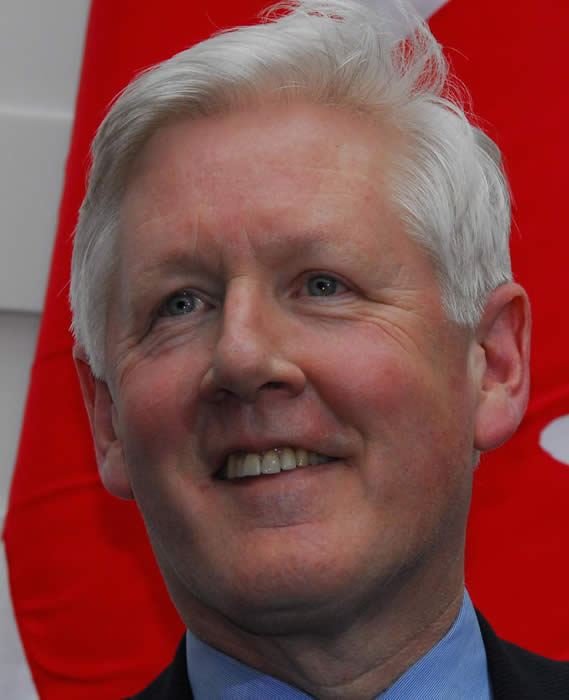Ilankai Tamil Sangam30th Year on the Web Association of Tamils of Sri Lanka in the USA |
|||
 Home Home Archives Archives |
Sri Lanka's Model Democracy is Being Ravaged by Warby MP Bob Rae, Globe and Mail, Toronto, May 12, 2008
A United Nations agency recently declared Sri Lanka one of the world's most dangerous places for aid workers and journalists. It is also a terrifying place to be a soldier. Both the government and its opponents, the Liberation Tigers of Tamil Eelam (LTTE), count scores of fighters killed and hundreds wounded during recent fighting. Sri Lanka's already horrific war is entering a quantitatively new phase. The response of the Sri Lankan government to these grievances was as swift as it was severe. It has waged a virtually uninterrupted military campaign against the LTTE since the early 1980s. For its part, the LTTE, a merciless armed group, has engaged in brutal attacks against civilians as well as assassinations of their opponents, raising support and money in the Tamil diaspora, including the large community in Canada. A conservative estimate puts the number of deaths in the fighting at 75,000. The government also launched aggressive operations against the JVP and about 60,000 civilians died over a two-year period in the late 1980s before the JVP made its transition to politics. Such wars are inevitably accompanied by authoritarianism and fear. Along with the growing role afforded the military and the introduction of emergency regulations, the government has cracked down on independent oversight bodies and press freedoms. War-related militarization has far-reaching implications for democracy. Symptoms include skyrocketing military spending and related racketeering. Defence Secretary Gotabhaya Rajapaksa, the President's brother, says he's determined to win the conflict militarily and matches his words with an impressive will to spend. Defence expenditures in 2007 were more than 50 per cent higher than in the previous year. They are expected to grow by another 20 per cent in 2008, to $1.48-billion. Defence now accounts for a fifth of all public spending. While Western governments have been unanimous in labelling the LTTE as a terrorist organization - the Tigers commit suicide bombings and recruit child soldiers - they have also been critical of the Sri Lankan government. Consequently, Colombo turned to China and Pakistan for support. Even the President of Iran was in the country recently. These governments are far less likely to criticize Sri Lanka for a democratic deficit. They are offering billions of dollars of aid with no strings attached. There is much that the warring parties can do to reverse this situation. A complete ceasefire and a return of the government and the LTTE to the negotiating table could reverse the escalation in casualties on both sides. Thousands of civilians have been killed or displaced since the resumption of war. Re-engaging independent monitors and getting them on the ground is critical to rebuilding confidence. Sri Lanka's standing as a model South Asian democracy is suffering under the weight of war. The warning signs are clear. The Worldwide Press Freedom Index, published by Reporters Without Borders, places Sri Lanka in 109th place, tied with Cambodia and right after U.S.-occupied Iraq. Likewise, Transparency International consistently reports corruption at the highest levels of executive and legislative government. The relentless conflict continues. Democracy itself hangs in the balance. Above all, Sri Lankans need to be able to imagine a country where mutual respect, an abandonment of extremist ideologies and new forms of autonomy and shared governance are possible. It will require extraordinary courage and determination to get there. The alternative - more death, more repression, more corruption, deeper economic stagnation - must not be allowed. Canada can hardly be indifferent to this conflict. Our own experience with federalism and conflict prevention, our deep attachment to pluralism and our ties to this troubled country should push us to far more active engagement. We need to get the diasporas to talk to each other and put an end to the funding pipeline. Bob Rae is the MP for Toronto Centre and former adviser to the Sri Lanka peace talks, 2002-2004 -------------------------------------------------------------------------------------------------- Response published in Globe and Mail, May 13, 2008 Sri Lanka and democracy Vancouver -- Through six decades of independence, Sri Lankan-style democracy has proven to be adept at killing innocents, torture and propaganda, all the while pursuing all-out war on Tamils. Tamils will welcome any shift in Canadian foreign policy that pursues an agenda of combatting false democracy and showing support for levelling the playing field for the disenfranchised in Sri Lanka. Canada's flag must not be allowed to wave alongside countries' such as Sri Lanka, whose leaders lust to spill blood in a frenzy of ethnic fanaticism. |
||
|
|||
 The country's once admired democratic institutions are buckling under the strain. It is worth recalling that the LTTE emerged in the late 1970s against a backdrop of mounting grievances in the north and east of the island country over declining access to language, employment and political rights. A radical leftist group, the People's Liberation Front (JVP) - composed primarily of disgruntled Southerners - raised similar concerns, albeit from a different perspective.
The country's once admired democratic institutions are buckling under the strain. It is worth recalling that the LTTE emerged in the late 1970s against a backdrop of mounting grievances in the north and east of the island country over declining access to language, employment and political rights. A radical leftist group, the People's Liberation Front (JVP) - composed primarily of disgruntled Southerners - raised similar concerns, albeit from a different perspective.